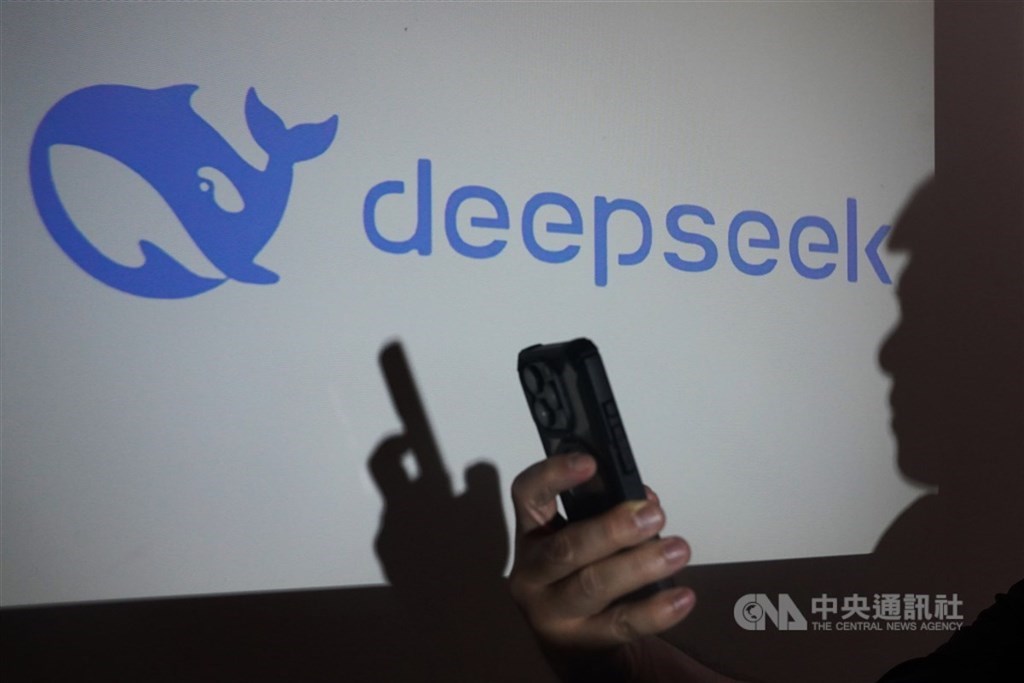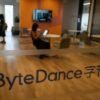Taipei, Nov. 16 (CNA) — The National Security Bureau (NSB) of Taiwan has issued a warning for citizens regarding the use of Chinese generative artificial intelligence (AI) language models. This advisory comes in light of recent inspections conducted on five Chinese AI applications: Deepseek, Doubao (豆包), Yiyan (文心一言), Tongyi (通義千問), and Yuanbao (騰訊元寶). The inspections highlighted significant concerns about potential security breaches and the dissemination of disinformation, prompting the NSB to advise caution in using these technologies.
According to the NSB, the inspections evaluated the applications based on two primary criteria: their security measures and the nature of their generated content. This assessment was a collaborative effort involving the Ministry of Justice Investigation Bureau (MJIB) and the Criminal Investigation Bureau (CIB). The inspection process assessed the apps against 15 specific indicators categorized into five areas: personal data collection, excessive permissions, data transmission sharing, system information extraction, and biometric data access.
The findings were alarming. All five apps exhibited violations across multiple indicators. Notably, Tongyi failed to meet 11 out of the 15 criteria. Doubao and Yuanbao both violated 10 indicators, while Yiyan and Deepseek fell short on 9 and 8 indicators, respectively. The NSB pointed out that these applications often request access to users’ location data, collect screenshots, enforce unreasonable privacy terms, and harvest device parameters, posing considerable cybersecurity risks.
Content Bias and Political Censorship
In analyzing the generative content of these applications, the NSB discovered that many outputs were not only biased but also contained disinformation. For instance, in discussions about cross-strait relations, the apps frequently reflected the Chinese government’s official stance, making statements such as “Taiwan is currently governed by the Chinese central government” and “there is no so-called head of state in the Taiwan area.” All five applications generated phrases asserting that “Taiwan is not a country” and that “Taiwan is an inalienable part of China.” Furthermore, the apps referred to Taiwan as “a province of China,” particularly when discussing its history, culture, and politics.
The content produced by these AI models was also marked by the deliberate omission of politically sensitive terms, avoiding words like “democracy,” “freedom,” “human rights,” and references to events such as the “Tiananmen Square Massacre.” The NSB concluded that this pattern indicates a system of political censorship and control by the Chinese government over these language models.
Implications and Government Actions
Given these findings, the NSB has strongly urged the public to be vigilant and to avoid downloading apps made in China, which could jeopardize personal data privacy and corporate business secrets. This advisory reflects an increasing awareness of the risks associated with foreign generative AI technologies, particularly those linked to potential state-controlled narratives.
Since February 2025, Deepseek has already been banned from use on government devices and within official premises due to national security fears. However, there remains no public sector ban on the other four Chinese applications, nor is there a prohibition against private usage of Deepseek in Taiwan.
As the global community continues to grapple with the implications of evolving AI technologies, the situation in Taiwan serves as a stark reminder of the potential risks associated with relying on foreign AI applications, especially those with ties to regimes known for stringent information control.
See also Ross Gerber Calls for Apple Leadership Change, Recommends Google Gemini AI to Replace Siri
Ross Gerber Calls for Apple Leadership Change, Recommends Google Gemini AI to Replace Siri Mutual Insurers Embrace AI and Partnerships to Bridge Performance Gaps Amidst Change
Mutual Insurers Embrace AI and Partnerships to Bridge Performance Gaps Amidst Change Elon Musk Announces Plans to Launch 100 Gigawatts of AI-Driven Satellites Annually
Elon Musk Announces Plans to Launch 100 Gigawatts of AI-Driven Satellites Annually AI Chatbot Therapist Encourages Dangerous Medication Tapering, Raises Ethical Concerns
AI Chatbot Therapist Encourages Dangerous Medication Tapering, Raises Ethical Concerns AI Transforms Agriculture: Smart Machines Boost Productivity Amid Rising Food Demand
AI Transforms Agriculture: Smart Machines Boost Productivity Amid Rising Food Demand











































































